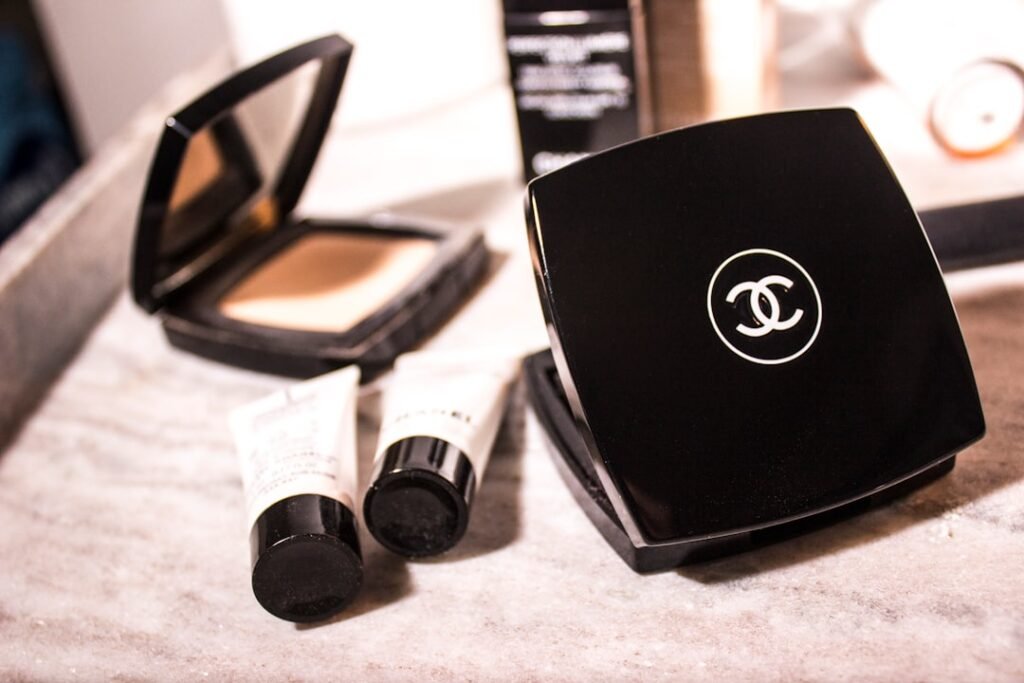Eczema, also known as atopic dermatitis, is a chronic skin condition that affects millions of people worldwide. It manifests as red, inflamed patches of skin that can be intensely itchy and uncomfortable. For us, understanding eczema means recognizing that it is not just a superficial skin issue; it is a complex interplay of genetic, environmental, and immunological factors.
The skin barrier, which typically protects us from irritants and allergens, becomes compromised in individuals with eczema. This leads to increased sensitivity and a heightened response to various triggers, making our skin prone to flare-ups. The impact of eczema on our skin goes beyond the physical symptoms.
We often find ourselves grappling with the emotional and psychological ramifications of living with a visible condition. The constant itchiness can disrupt our daily lives, affecting our sleep patterns and overall quality of life. We may feel self-conscious about our appearance, leading to social withdrawal or anxiety.
Understanding eczema requires us to acknowledge not only the physical discomfort but also the emotional burden it places on us as individuals.
Key Takeaways
- Eczema is a chronic skin condition characterized by red, itchy, and inflamed patches on the skin.
- A diagnosis of eczema can be the start of a challenging journey with irritated and sensitive skin.
- Identifying and avoiding triggers such as certain fabrics, soaps, and allergens can help manage eczema flare-ups.
- Navigating the world of skincare products for sensitive skin can be overwhelming, but finding the right routine is crucial for managing eczema.
- Living with eczema can take a toll on mental health, and seeking professional help and support is important for managing the emotional impact.
My Eczema Diagnosis: The beginning of my journey with irritated skin
Our journey with eczema often begins with a diagnosis that can feel overwhelming. For many of us, the first signs of eczema appeared in childhood, characterized by dry patches on our skin that seemed to come and go without explanation.
When we finally sought medical advice, the diagnosis brought both relief and confusion.
We were relieved to have a name for our condition but confused about what it meant for our daily lives. The doctor’s explanation of eczema as a chronic condition left us with more questions than answers. As we navigated this new reality, we quickly learned that managing eczema would require a proactive approach.
We began to educate ourselves about the condition, seeking information from reputable sources and connecting with others who shared similar experiences. This initial phase of our journey was marked by trial and error as we experimented with various treatments and lifestyle changes. Each flare-up served as a reminder of the challenges we faced, but it also fueled our determination to find effective ways to manage our skin.
Managing Triggers: Identifying and avoiding the factors that worsen eczema

One of the most crucial aspects of managing eczema is identifying and avoiding triggers that exacerbate our symptoms. For us, this process often feels like detective work, requiring careful observation and reflection on our daily habits and environments.
Common triggers include certain fabrics, soaps, detergents, and even weather conditions.
We learned to pay close attention to how our skin reacted after exposure to different substances or environments, which helped us pinpoint specific irritants. Avoiding triggers is not always straightforward; it often involves making significant lifestyle adjustments. For instance, we may have had to switch to fragrance-free laundry detergents or avoid wearing wool clothing that irritates our skin.
Additionally, stress has proven to be a significant trigger for many of us, leading to flare-ups during particularly challenging times. By recognizing these patterns, we have been able to take proactive steps to minimize our exposure to triggers, ultimately leading to fewer flare-ups and improved skin health.
Finding the Right Skincare Routine: Navigating the world of products for sensitive skin
Finding the right skincare routine can feel like an overwhelming task for those of us with eczema. The market is flooded with products claiming to be suitable for sensitive skin, but not all are created equal. We quickly learned that what works for one person may not work for another, making it essential for us to experiment with different products while keeping our skin’s unique needs in mind.
Our journey involved countless trips to the store, reading labels meticulously, and seeking recommendations from dermatologists and fellow eczema warriors. Moisturization became a cornerstone of our skincare routine. We discovered that applying a thick emollient immediately after bathing helped lock in moisture and create a protective barrier on our skin.
We also learned to avoid products containing alcohol or harsh fragrances, as these could further irritate our already sensitive skin. Over time, we developed a personalized skincare regimen that included gentle cleansers, rich moisturizers, and occasional medicated creams prescribed by our healthcare providers. This process taught us the importance of patience and persistence in finding what truly works for us.
The Emotional Toll: Dealing with the psychological impact of living with eczema
Living with eczema takes an emotional toll that often goes unrecognized by those who do not experience it firsthand. For many of us, the constant itchiness and visible symptoms can lead to feelings of frustration and isolation. We may find ourselves avoiding social situations or feeling self-conscious about how our skin looks.
The emotional burden can be just as challenging as the physical symptoms, leading to anxiety and depression in some cases. We have learned that acknowledging these feelings is an essential part of coping with eczema. Sharing our experiences with friends or support groups has provided us with a sense of community and understanding.
It has been empowering to connect with others who truly understand the struggles we face daily. By opening up about our emotional challenges, we have found solace in knowing we are not alone in this journey.
Seeking Professional Help: My experience with dermatologists and other specialists

Exploring Treatment OptionsSeeking Additional Perspectives
We have also explored alternative specialists, including allergists and nutritionists, who can offer additional perspectives on managing eczema through diet or allergy testing.
Taking Charge of Our Health
These consultations have empowered us to take charge of our health and make informed decisions about our treatment plans.
Exploring Alternative Therapies: From natural remedies to holistic approaches
In addition to conventional treatments, many of us have sought alternative therapies to complement our eczema management strategies. We have explored natural remedies such as coconut oil, oatmeal baths, and herbal supplements that claim to soothe irritated skin. While some of these approaches have provided temporary relief, we have learned that results can vary significantly from person to person.
Holistic approaches have also gained popularity among those of us living with eczema. Practices such as yoga and mindfulness meditation have helped us manage stress levels, which can trigger flare-ups. By incorporating these techniques into our daily routines, we have found moments of calm amidst the chaos of living with a chronic condition.
While alternative therapies may not replace traditional treatments entirely, they have offered us additional tools in our quest for relief.
Lifestyle Changes: How diet, stress, and sleep can impact eczema flare-ups
Our understanding of eczema has evolved to include the significant role lifestyle factors play in managing flare-ups. Diet has emerged as a critical area of focus for many of us; we have experimented with eliminating common allergens such as dairy or gluten from our meals to see if they impact our skin’s condition. While results have varied among individuals, we have found that maintaining a balanced diet rich in anti-inflammatory foods can contribute positively to our overall well-being.
Stress management has also become a priority in our lives as we recognize its connection to eczema flare-ups. We have adopted various stress-reduction techniques such as deep breathing exercises or engaging in hobbies that bring us joy. Additionally, prioritizing sleep has proven essential; lack of rest can exacerbate symptoms and leave us feeling more vulnerable to flare-ups.
By making these lifestyle changes, we have taken proactive steps toward creating an environment conducive to healthier skin.
Overcoming Challenges: Coping with the daily struggles of living with eczema
Coping with the daily challenges of living with eczema requires resilience and adaptability. Each day presents its own set of hurdles; whether it’s dealing with an unexpected flare-up or navigating social situations where we feel self-conscious about our skin, we must remain vigilant in managing our condition. We have learned that developing a strong support system is vital in overcoming these challenges; friends and family who understand what we are going through can provide encouragement during tough times.
We also recognize the importance of self-compassion in this journey. There are days when we may feel defeated by our skin’s unpredictability or frustrated by the limitations it imposes on our lives. Acknowledging these feelings without judgment allows us to move forward with greater acceptance and understanding of ourselves.
By embracing both the good days and the bad days, we cultivate resilience that empowers us to face whatever challenges lie ahead.
Embracing Self-Care: Finding ways to prioritize my mental and physical well-being
Embracing self-care has become an essential part of managing our eczema journey effectively. We have learned that taking time for ourselves—both mentally and physically—can significantly impact how we cope with this condition. Simple practices such as setting aside time for relaxation or engaging in activities that bring us joy have proven beneficial in reducing stress levels.
Incorporating self-care into our daily routines has also meant prioritizing skincare rituals that nourish both body and mind. Whether it’s indulging in a soothing bath or practicing mindfulness during moisturizing sessions, these moments allow us to reconnect with ourselves amidst the chaos of living with eczema. By making self-care a priority, we empower ourselves to navigate this journey with greater resilience and grace.
Sharing My Story: The importance of raising awareness and supporting others with eczema
As we reflect on our experiences living with eczema, we recognize the importance of sharing our stories to raise awareness about this often-misunderstood condition. By opening up about our struggles and triumphs, we hope to foster understanding among those who may not be familiar with eczema’s complexities. Sharing our journeys can help break down stigma and encourage others facing similar challenges to seek support.
Moreover, connecting with fellow eczema warriors has been incredibly rewarding; through online forums or local support groups, we have found camaraderie in shared experiences. By supporting one another through advice or simply lending an empathetic ear, we create a sense of community that uplifts us all. Together, we can advocate for greater awareness and understanding surrounding eczema while empowering others on their journeys toward healing and self-acceptance.
In conclusion, living with eczema is undoubtedly challenging; however, through understanding its complexities and embracing self-care practices while seeking support from professionals and peers alike, we can navigate this journey more effectively together. By sharing our stories openly, we contribute not only to our healing but also inspire others facing similar battles along their paths toward wellness.
If you are interested in learning more about skin infections and how they can impact your skin health, check out this article for valuable information. Understanding the different types of skin infections can help you better manage your skin condition and overall well-being.
FAQs
What is eczema?
Eczema is a chronic skin condition that causes the skin to become inflamed, itchy, and irritated. It can appear as red, dry, and scaly patches on the skin.
What are the common triggers for eczema flare-ups?
Common triggers for eczema flare-ups include stress, certain foods, environmental factors (such as pollen or pet dander), harsh soaps or detergents, and changes in weather.
How is eczema typically treated?
Eczema is typically treated with moisturizers to keep the skin hydrated, topical corticosteroids to reduce inflammation, and antihistamines to relieve itching. In some cases, phototherapy or oral medications may be prescribed.
Can eczema be cured?
Eczema is a chronic condition, meaning it cannot be cured. However, with proper management and treatment, symptoms can be controlled and flare-ups can be minimized.
What are some lifestyle changes that can help manage eczema?
Some lifestyle changes that can help manage eczema include avoiding known triggers, using gentle skincare products, keeping the skin moisturized, managing stress, and wearing soft, breathable fabrics.
When should someone with eczema see a doctor?
It is important for individuals with eczema to see a doctor if their symptoms worsen, if they develop an infection, or if their current treatment plan is not effectively managing their eczema.


